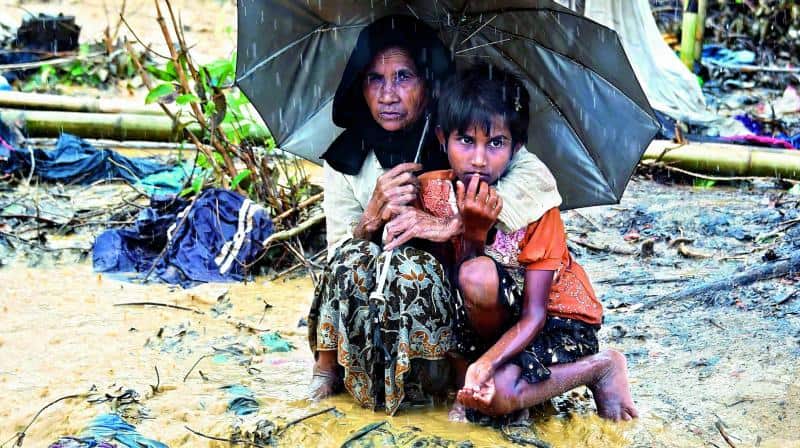Dhaka: Bangladesh will begin relocating around 100,000 Rohingya refugees to a desolate island off its southern coast in June, a senior official said Wednesday, despite warnings the site is prone to violent weather.
Authorities say shelters for around 50,000 refugees have been constructed at Bhashan Char, a silty strip of land that only emerged from the Bay of Bengal in 2006.
The remaining shelters will be completed within two months, Bangladesh’s disaster management secretary Shah Kamal told UN agencies during a briefing about the controversial plan in Dhaka.
“It will begin in the first week of June,” Kamal said of the relocation project that has attracted fierce criticism since being first proposed in 2015.
“We’re building accommodation for 100,000 people,” he told AFP, adding the navy would construct more than 1,440 large shelters to house the refugees by May 31.
The navy is also filling in low-lying areas and building embankments around the entire perimeter to ensure the island can resist tidal flooding and monsoon storms.
Bangladesh, a low-lying riverine country at risk from rising sea levels, is prone to tropical cyclones and 120 evacuation shelters are also being constructed on the island, Kamal said.
Bangladesh allocated $280 million last November to make the island suitable for habitation as hundreds of thousands of refugees from Myanmar crammed into squalid camps near the border.
Nearly 700,000 Rohingya have crossed into Bangladesh since August alone, fleeing army violence in Rakhine state that US and UN officials say amounted to ethnic cleansing.
Kamal said refugees most vulnerable to the approaching monsoon would be offered the chance to relocate to the small island, which lies west of the port city of Chittagong.
The process would be voluntary, he added.
The UN says 150,000 Rohingya in the camps were at risk of landslides, heavy rains and diseases when the monsoon season hits in June.
UN resident coordinator Mia Seppo said Bangladesh wanted to start the process in June but said more discussion was needed.
“That is the timeline they are looking at,” Mia Seppo told AFP, adding any relocation must be “voluntary” and conducted safely and with dignity.
The refugees “need to have a say, need to be consulted and need to understand the conditions to which they would be moving”, she added.
The island is one hour’s boat journey from the nearest inhabited land.
Critics warned the whole island could be inundated by floods or wiped out by cyclones, which have killed hundreds of thousands along Bangladesh’s turbulent coast in the last half century.
The plan was shelved but revived in August as unprecedented waves of refugees poured into Bangladesh’s southeast, placing enormous strain on the limited resources in the region.
Many Rohingya remain opposed to the relocation plan, but officials are confident tens of thousands will be persuaded to leave dire conditions in existing camps.
Meanwhile proposals for Rohingya to return to Myanmar have stalled. An agreement between Bangladesh and Myanmar to repatriate Rohingya has not seen a single refugee return.
AFP

